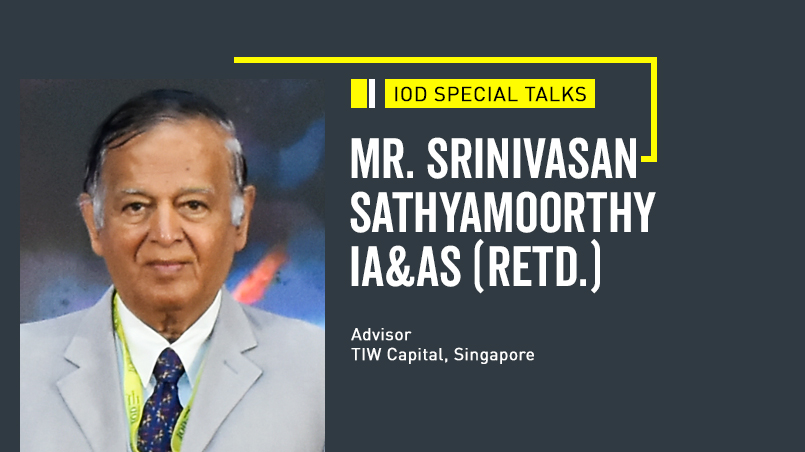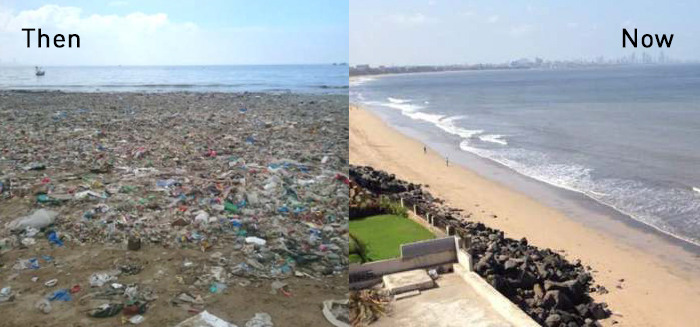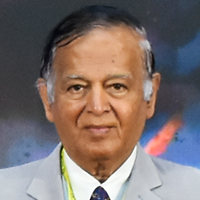 Connect with us
Connect with us

 Aug 05, 2024
Aug 05, 2024
Embracing Innovation and Driving Sustainability through Environmental Stewardship
Many thanks to IOD for giving me the opportunity. My thanks also go to the chair, the audience, and my fellow panellists. At the outset, I must confess that I am no hands-on expert on environment management and climate finance. But as an independent director, I am a distant neighbour to the challenges and thoughts that the panel is discussing this afternoon. My companies are engaged in ethanol production, acrylic fibre making, and the manufacturing of sophisticated plastic packing materials. The sustainability concept has been a hard sell so far for me. The boards of my companies are microscopic in their approach to battling immediate issues and other societal concerns, and for them, sustainability is a distant thunder. As one of the top 1000 listed companies, my company is filing the BRSR and distributing the mandated CSR. While that is the maximum they are willing to bend, balancing the stakeholders 'interests, there is a need for a telescopic view and to look at the future.
At this juncture, as one hailing from Tamil Nadu but settled in Bangalore, I am reminded of the water dispute between the two states. Like many other resources, water is considered sacred religiously but is not respected as a shrinking economic resource. Be it the ocean, river, lake, pond tank, or well, we disrespect water. Our dyeing units in Rajkot or tanneries in Vellore deplete the water table, the aquifers are getting choked, and the substrata table of water is acidified. The bigger sin is that we have disrespected river Ganga for decades and polluted it beyond belief. The CAG of India shared his concerns in the early eighties and presented a report to the parliament on the Ganga Action Plan. But to no avail. Why should I talk about only rivers when we are polluting the oceans?
The world outside is reinterpreting and reinforcing sustainability in myriad ways.
My friend Mohammed Afroz initiated Verosova Beach (Mumbai) cleaning, and the whole community joined for weeks. Celebrities like Amitabh Bachchan joined the mission and carted away tons of garbage. The United Nations chipped into honoring Afroz as the Citizen of the Earth. This initiative holds a lesson for all of us. We should educate our brothers and sisters against polluting water and prevent it if possible. This need not be left to the government. The revival of water bodies has been a social movement in Gujarat. So individual citizens can contribute to environmental management in a big way. I feel that right down to the Resident Welfare Associations, responsibility for the environment would flow. Today, urban waste management is emerging as a mult imillion-dollar opportunity. That is where you and I can contribute and foster the sustainability of societal resources. We can contribute to social exchanges and philanthropic bodies to manage the environment, be it temple tanks or city streets.

Here, I am reminded of a story. I was commissioned by Delhi Door Darshan to interview an ambassador on Nuclear Disarmament Day. His Excellency queried my credentials. I responded that I am a human being and am interested in a nuclear-weapon free world. Soon, the interview started. Sustainability of the environment and resources is a similar common cause. All of us are stakeholders. We need to transcend discussions on solar, wind, and fossil fuel energies and actively engage.
'Sustainability is the default choice, is the slogan of the Sustainability Mafia in Bangalore. This mafia is an aggregation of researchers, motivators, incubators, academics, venture capitalists, angel investors, marketing professionals, and financial wizards. The backbone of the group is the young, enlightened, and bright minds from IITs, IIMs, IISCs, and BITS Pilani. I attended their thought provoking session at the Leela Palace Hotel some three weeks ago. Let me share with you a select few projects, presented to foster the sustainability of natural resources with a subtext of commercial viability. This would show the world outside is transforming a lot with new technologies as well as innovations.
While the national government is on stir ups to scale up sustainability, the boards have to keep an eagle's eye to control energy demand and waste.
The first presentation was AgriVolt, which postulated installing solar panels on farms and fields without interfering with the crops and yields. The selling point was the supplemental income for farmers with low-cost electricity for farm operations. The macro view was to curb the demand for power.
The second was SWIALTO, a mobile application to monitor the driving habits of commercial vehicles. The data collected by the application would be centrally stored for review by fleet operators, RTOs, and vehicle insurance companies for necessary action. Over speeding and rash driving consume extra fuel and, if regulated well, can help the economy significantly.
The third presentation was about lab-created microbes to eat up the nano-plastics that we release into the environment in our daily lives. It was averred that right from brushing the teeth in the morning to Nivea application at night, nano-plastics are released into the ambient world, and these particles remain undestroyed and harm nature.
One such presentation was made by Mr. Saurabh Kumar, an ex-UN official. He is now managing GEEAP in Delhi, a philanthropic institution with 1.5 billion in capital. His earlier contribution was to make India the hub of LED bulb manufacture. The price for the common man was brought down from Rs. 150 to Rs. 38 to enable a reduction in domestic consumption of power.
One of my illustrious panellists mentioned the monetization of molasses waste in a sugar factory. Rightly so. Such new products replace other energy-intensive products. I may add to her observation that molasses can be powdered to manufacture tableware instead of using chinaware or plastic ware. These days, coconut shells, rejected rubber tires, plantain barks, and tree leaves are converted into many alternative products. The circular economy is thriving in 3rd World countries such as India, Indonesia, the Philippines, and Vietnam. Reuse and recycling create employment and reduce the depletion of nature.
Such innovations and their significant potential to enhance sustainability are persuading the EU to hold a conference similar to the Sustainability Mafia conference for European industrialists and start-ups. Even last month, there was an EU-sponsored conference in Delhi for Euro clients.
So the world outside is reinterpreting and reinforcing sustainability in myriad ways. Maybe the time has come for IOD to foster these young minds and their start-ups, which are also mostly companies. Decades ago, CSIR started honouring young scientists and promoting young entrepreneurs. I would even advance an idea to IOD to institute awards for game changers in the arena of sustainability, honouring the memory of Gen. Ahluwalia in this Silver Jubilee Year.
A similar request has been made by me to the Indian Chamber of Commerce to reward young start-ups. I am the Chair of the Jury at the ICC. The response has been in the affirmative.
We still have to tackle the tail. I mean climate finance. It is estimated that civilizational change will cost $ 2–3 trillion per year until 2030. The IMF, WB, and a host of MDBs are grappling with the challenge and have proposed relaxation of SDRs, blended finance, Finance Commons, carbon credits, and commitments from the developed world. But it is estimated that only 1/6th of the required resources mentioned in the Paris Conference have been garnered. Now we are looking at the Mexico Conference.
India has emerged as the voice of the South. Apart from past depredations of nature indulged in by the West, the developed world continues to consume five times the natural resources that the developing South is consuming, even today. So the onus is on the developed world to curtail consumption while the developing world can do what is best, such as adopting EV cars or chip manufacturing. India is showing the way to cater to sustainability in this way. While the national government is on stir-ups to scale up sustainability, the boards have to keep an eagle's eye to control energy demand and waste.
Let me thank you for your patience.

Excerpts from the 'Special Address' delivered by Mr. Srinivasan Sathyamoorthy IA&AS (Retd.), Advisor, TIW Capital, Singapore in 'Session-III' of th the 25 International Conference on Environment Management and Climate Change, held on June 27, 2024 in Hotel The Lalit Ashok, Bengaluru.
Owned by: Institute of Directors, India
Disclaimer: The opinions expressed in the articles/ stories are the personal opinions of the author. IOD/ Editor is not responsible for the accuracy, completeness, suitability, or validity of any information in those articles. The information, facts or opinions expressed in the articles/ speeches do not reflect the views of IOD/ Editor and IOD/ Editor does not assume any responsibility or liability for the same.
About Publisher

Bringing a Silent Revolution through the Boardroom
Institute of Directors (IOD) is an apex national association of Corporate Directors under the India's 'Societies Registration Act XXI of 1860'. Currently it is associated with over 30,000 senior executives from Govt, PSU and Private organizations of India and abroad.
View All BlogsMasterclass for Directors
Categories